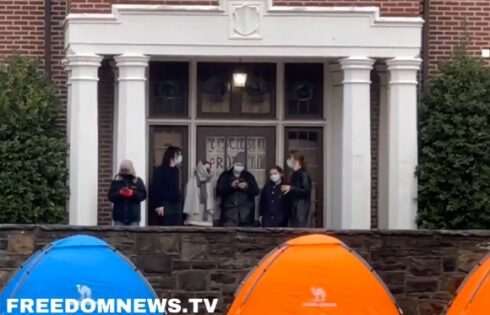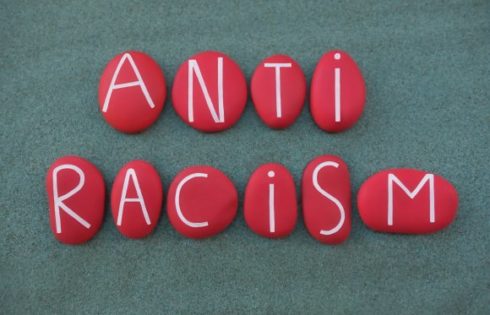
Violates Proposition 209?
Legal action may be taken against the University of California Berkeley after it released a document showing that mandatory diversity statements may have led to discrimination in hiring.
The six-page document analyzes the taxpayer-funded institution’s new focus on hiring job candidates based on “knowledge, past contributions, and/or future plans for advancing diversity, equity, and inclusion.” If candidates didn’t meet UC-Berkeley’s standards in this area, they weren’t hired.
The 2018-2019 summary report for the “Initiative to Advance Faculty Diversity, Equity and Inclusion in the Life Sciences” was written by two science professors, Mary Wildermuth and Rebecca Heald, who is also regional associate dean. They are co-chairs for the Life Sciences Initiative Committee.
Daniel Ortner, an attorney at the Pacific Legal Foundation, told two academic blogs that he is “looking to challenge the University of California Policy.” He wants anyone who was required to submit a mandatory diversity statement and not hired to contact him.
MORE: Police escort instructor off campus after he ridicules diversity
The policy has “several serious constitutional problems,” Ortner told The College Fix in an email. He started looking into it when “[s]ome concerned UC professors” contacted him: “[T]he more I’ve looked into it the worse UC’s actions appear.”
When applicants are required to submit a diversity statement on their own experience, university reviewers would likely be able to tell the applicants’ race and gender, “allowing those factors to be taken into account,” Ortner said.
That is “contrary to California Proposition 209,” the 23-year-old ballot initiative that amended the state constitution, “and potentially the Equal Protection Clause” of the U.S. Constitution.
The Fix emailed and called Heald multiple times asking what hiring officials were looking for in diversity statements and what they meant by “past contributions” to diversity. She did not respond. Wildermuth did not respond to emails, and her office phone was disconnected.
Hispanic applicants were the big winners
The document says six Life Sciences departments in three colleges agreed to this initiative and will “incorporate interventions in all future faculty recruitments.”
Some departments have “met resistance by a small number of senior faculty members” to the initiative, Heald and Wildermuth noted. They did not list any names of such senior faculty members or respond to The Fix when asked to identify them.
“A Life Sciences Initiative (LSI) Committee was formed early in the fall of 2018 to implement the initiative and serve as the search committee for our joint open-field faculty recruitment,” the document states.
The committee met 19 times over the school year and was made up of 22 faculty and staff members from all departments. It discussed and implemented four interventions: building a critical mass, strengthening applicant pools, improving candidate evaluation processes, and institutional change.
Heald and Wildermuth included tables that show the percentage of each ethnicity and gender represented in the three hiring stages, from the full applicant pool to the intermediate “Longlist” and the final “Shortlist.”
University of Chicago biologist Jerry Coyne, whose blog often criticizes perceived attacks on academic freedom, shared his analysis of both tables.
MORE: UC-Davis prof under fire for opposing required diversity statements
In one of them, the “cluster search” across Life Sciences departments, Coyne observed that “the proportion of minorities increased” on both the long and short lists, except for Asian and Native Americans:
White males, who are supposed to be eliminated by this kind of search, were also significantly whittled away. In contrast, Hispanics and African Americans were considerably enriched, with the proportions on the final shortlist (interviewees) enriched by 4.5-fold and 3.25-fold respectively.
The cluster search first reviewed candidates for five full-time equivalent positions “based solely on contributions to diversity, equity and inclusion,” removing the names to reduce “unconscious bias in the evaluation processes.” Less than a quarter of nearly 900 applicants who met basic qualifications made it past this first review.
The cluster table showed whites were the narrow majority of the applicant pool but less than 14 percent of the short list. Men plummeted from an even larger majority of the applicant pool to a little over a third of the short list.
The only minorities to not substantially improve by the short list were Native Americans, of whom only three applied, and Asians, who fell slightly between long and short lists. Hispanics represented an even larger majority of the short list than whites had in the full applicant pool.
‘No matter how good your scholarship … you were toast’
“Limiting the first review to contributions in DE&I [diversity, equity and inclusion] is itself a dramatic change of emphasis in the typical evaluation process which generally focuses on primarily on research accomplishments,” the document says.
Heald and Wildermuth wrote that this was “one of the most successful interventions of the initiative.” They did not respond to The Fix when asked if there was a certain threshold for white candidates they would not go above, regardless of qualification.
Of eight department-specific searches, only the Environmental Science, Policy and Management department went through a similar process in hiring as the pan-department cluster search.
The ESPM demographics table shows every minority represented on the short list. Whites were nearly three in five applicants in the pool as well as a majority of the long list, but none made the short list. Men also dropped to a minority on the short list.
MORE: Read this law professor’s conservative diversity statement
To “strengthen” applicant pools, participating departments specifically mentioned commitments to diversity in their ads for candidates and encouraged specific potential candidates to apply. Finalists were required to meet with department equity advisors “and/or with a student panel” in on-campus interviews, in another change. Among “institutional changes,” additional funding has been set aside for incoming faculty “to support their DE&I efforts.”
By imposing “a cutoff for diversity from the outset,” the hiring practices showed that diversity was “actually the most important criterion for a search to proceed further,” the University of Chicago’s Coyne wrote on this blog. “No matter how good your scholarship, if you didn’t pass the diversity cutoff … you were toast.”
Philosopher Brian Leiter, a colleague of Coyne’s at the University of Chicago, also promoted lawyer Ortner’s search for rejected UC-Berkeley candidates to challenge the policy in court.
Leiter compared the mandatory diversity statements to “McCarthy-era loyalty oaths” and said “not just any means are acceptable for promoting worthy ends.” For example, an explicit ban on hiring whites would also be a “diversity-promoting hiring practice.”
Forced ideology over treating students fairly
The university’s practices lead to “viewpoint discrimination by saying that any applicant who expresses views critical of affirmative action and diversity programs will receive a low score on their contribution to diversity statement,” the Pacific Legal Foundation’s Ortner told The Fix.
Another problem is that “research interests are being scrutinized,” meaning that research pertaining to diversity will automatically get a better score. “[I]t will be difficult for a professor expressing more conservative economic or social policies to be hired,” he said.
“Mandated diversity statements impose ideological conformity on the faculty,” Ortner wrote in a Daily Caller essay. They weed out prospective hires who do not share “the university’s orthodoxy surrounding diversity and inclusion,” even if they treat “all students fairly.”
Coyne agrees with Ortner that the professed “blind” evaluation of job candidates likely did not apply to minority candidates, because their identities “would have been clear, I suspect, from the diversity statements alone.”
This initiative is “chilling” as a “specific form of social engineering” that privileges race and sex over other forms of diversity, such as class and political viewpoint, the biologist said. It goes far beyond affirmative action, which he supports, and into the realm of “ideology”:
By hiring large numbers of deans and administrators whose job is to promote initiatives like the above, colleges like Berkeley have guaranteed that this kind of process will only get more onerous and more invidious.
MORE: The new religion on secular college campuses
IMAGE: Pop Paul-Catalin / Shutterstock.com





Please join the conversation about our stories on Facebook, Twitter, Instagram, Reddit, MeWe, Rumble, Gab, Minds and Gettr.